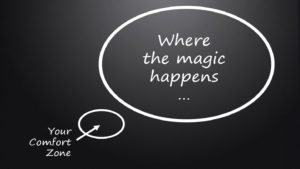Confession: I was a coaching hypocrite
Coaches help people learn, in part, by creating trusting relationships. Trust is the safe environment that allows people to talk about who/how they want to be, then recognize gaps between this ideal self and how they tend to show up in certain circumstances. The coach and client discover what the client needs to do to close those gaps, which might include:
- Stepping back to take a broader perspective
- Increasing motivation
- Gaining insight
- Noticing an internal dialogue and letting it go
- Adopting a different mindset, behavior or mental habit
Then they identify specific practices and situations to experiment with. The client commits. Conducts the experiment and reviews what happened with the coach. How did people respond? How effective was the client? What would make him even more effective? The client continues practicing to achieve mastery. This change cycle requires taking risks, making mis-steps and adjusting.
What’s a coaching hypocrite?
A coaching hypocrite doesn’t do this for him/herself. I, the coaching hypocrite, wasn’t intentionally exploring and identifying where I could grow. I wasn’t taking risks, making mis-steps and adjusting. In other words, I was squarely inside my comfort zone, working exclusively by referral and an excellent coach, according to peers, past and current clients. But something was missing.
I began to mind the gap and discovered I wasn’t as fulfilled and excited about my work as I wanted to be. That led to the discovery that I wasn’t the great coach I aspire to be. I wasn’t being my creative and playful self, with myself. I was missing the magic of trying something new and feeling delighted when it worked, or figuring out what adjustments to make when it didn’t. So I stepped out of my comfort zone and into that unfamiliar magic place where growth and change happens. My first stop was the The Strategic Interruption Zone. Just as I was interrupting myself, I needed to start interrupting my clients to maximize their learning.
Why and When Interrupting is the Right Thing to Do
Coaches must be great listeners. It’s the foundation of our work. But I’ve noticed a number of situations in which listening to the client isn’t adding value to his/her learning. You probably could add a few.
- Talking in circles
- Providing too many unnecessary details
- Avoiding what’s difficult and challenging
- Not getting to the heart of the matter
- Talking to prove himself right versus increasing self-awareness and opportunities for growth
- Losing focus
- Seeing others and/or himself through a lens of unchecked assumptions and skewed perceptions
Vignette – Interrupting
In life, we’re taught not to interrupt. It’s rude, but my client’s feedback suggests interrupting can be the best thing a coach does.
Me: “What was helpful and how could I have been more helpful?”
Client: “You listened carefully but you also interrupted.”
Me: (Gulps silently)
Client: It stopped me from going down rabbit holes and helped me focus on what was important.
I coach coaches. One of them provided that feedback. When we worked together, I was experimenting with the strategic interrupt – intervening intentionally, while the client is talking, to maximize learning. The feedback was affirming.
The magic is back!
Post Script
I’m now helping clients become their own Chief Interruptors so they can learn more faster. But that’s a story for another day.


